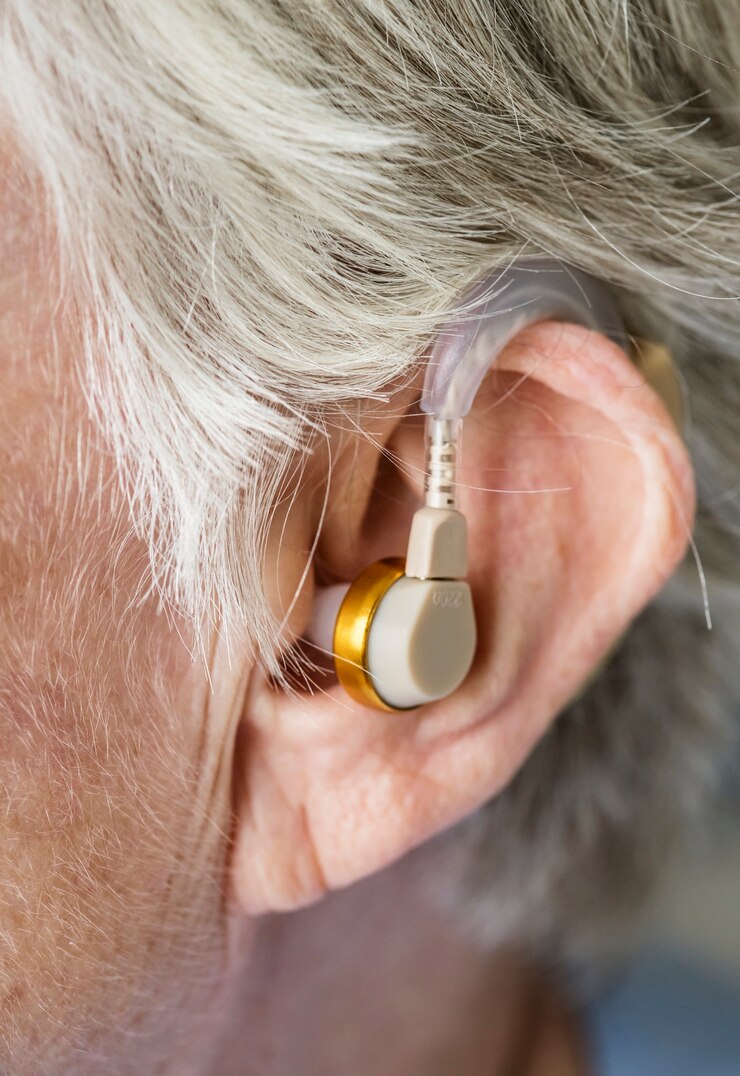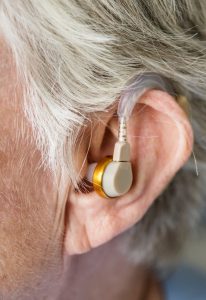24-Hour Flash Sale – Grab Your Deal Now! • 🎊Discount up to 35% for first purchase only this month. • ⏳ Winter Sale Amazing Discounts Offers is live Now • 🚚 Free Delivery on Orders up to Rs. 2,500! • 🛍️ Limited Stock – Shop Before It’s Gone! •
24-Hour Flash Sale – Grab Your Deal Now! • 🎊Discount up to 35% for first purchase only this month. • ⏳ Winter Sale Amazing Discounts Offers is live Now • 🚚 Free Delivery on Orders up to Rs. 2,500! • 🛍️ Limited Stock – Shop Before It’s Gone! •
24-Hour Flash Sale – Grab Your Deal Now! • 🎊Discount up to 35% for first purchase only this month. • ⏳ Winter Sale Amazing Discounts Offers is live Now • 🚚 Free Delivery on Orders up to Rs. 2,500! • 🛍️ Limited Stock – Shop Before It’s Gone! •
24-Hour Flash Sale – Grab Your Deal Now! • 🎊Discount up to 35% for first purchase only this month. • ⏳ Winter Sale Amazing Discounts Offers is live Now • 🚚 Free Delivery on Orders up to Rs. 2,500! • 🛍️ Limited Stock – Shop Before It’s Gone! •
24-Hour Flash Sale – Grab Your Deal Now! • 🎊Discount up to 35% for first purchase only this month. • ⏳ Winter Sale Amazing Discounts Offers is live Now • 🚚 Free Delivery on Orders up to Rs. 2,500! • 🛍️ Limited Stock – Shop Before It’s Gone!
24-Hour Flash Sale – Grab Your Deal Now! 🎊Discount up to 35% for first purchase only this month. • ⏳ Winter Sale Amazing Discounts Offers is live Now • 🚚 Free Delivery on Orders up to Rs. 2,500! • 🛍️ Limited Stock – Shop Before It’s Gone! •
Signs You or a Loved One Might Need a Hearing Aid
Facebook
Twitter
Pinterest
LinkedIn

Signs You or a Loved One Might Need a Hearing Aid
Indicators That You or Someone Close to You May Need Hearing Aids: What to Look Out For by 2025
In Pakistan, the gradual onset of hearing loss is usually a very common issue that many people do not notice. In 2025, due to increased exposure to digital devices, age-related elements, and noise pollution, maintaining one’s hearing health will be more critical than ever. Disregarding the initial indications can result in social withdrawal, poor quality of life, or even reduced levels of cognitive functioning.
Earlier detection of symptoms and recognizing the point one is required to get a hearing aid, is extremely important for oneself and for the people around them. This article explains the major warning signs along with the specific changes in behavior that need attention, especially in the context of Pakistan and its culture.
Most Common Symptoms of Hearing Loss Signs You or a Loved One Might Need a Hearing Aid
-
Regularly Requesting Loosely Phrased Repetition
This is referred to as “The Elderly Syndrome”. If the answer is yes, then as a close friend or relative, keep a couple of questions in mind. People diagnosed with the aforementioned syndrome regularly ask others to repeat themselves, especially in quieter settings. Such interferences are usually brushed off as noise distractions.
2. Having trouble hearing in noisy environments
Various events such as weddings, restaurants, and markets in Pakistani culture can be very noisy. For a person with normal hearing ability, struggling to follow conversations while others seem to manage most certainly suggests the ears are not filtering sound correctly. A hearing aid can help with this, as it will amplify the speech of the person in focus and reduce background noise.
-
Having to increase the volume of the radio or TV more than others prefer Signs You or a Loved One Might Need a Hearing Aid
This is a classic example, and if the TV volume is unbearable for everyone around you, but feels normal for you, it is a telltale sign. Many people notice their loved one’s hearing issue because of this exact behavior. Most family members who tend to keep the volume high on their phones or TV pay attention to them. Consistently turning the volume high is often one of the first external indicators.
-
Saying what or any of its variations more frequently than normal Signs You or a Loved One Might Need a Hearing Aid
Vernacular Pakistani conversations tend to use interjections such as “haan?” or “kya kaha?” as signifiers or cues during a conversation. If repeating such terms becomes a norm, especially in quiet rooms, one should investigate why this is the case.
-
Situationally avoiding phone calls or conversations Signs You or a Loved One Might Need a Hearing Aid
Considered socially active, a lot of people seem to enjoy actively engaging with people socially, and aunties, especially elders, tend to avoid calls, meetings or even answering the door. This avoidance is often dismissed as a change in persona but in reality, the underlying reason could be difficulty untreated hearing.
Behavioral Indicators to Look out For Relating to Hearing Issues in People You Care About Signs You or a Loved One Might Need a Hearing Aid
-
Increased irritability or withdrawal
Chronic issues socializing can lead to frustration in trying to understand what is coming from those around them. Every active person who is suddenly quiet or animated family members who go mute during discussions may have hearing problems.
-
Misinterpreting Words
This phenomenon is much worse than simply not hearing. Sometimes it the brain does “hear” something, it is the wrong word entirely. Some people may in fact respond wrongly to some questions or statements which leads to chaos in conversations.
-
Physique
Looking over to listen more closely, cupping the ear or tilting the head are signs indicative of straining to hear more which is a non verbal change. These adjustments from the norm are being made unconsciously towards a goal of catching certain words and sounds more clearly.
Risk Factors Related Specific to Pakistan Signs You or a Loved One Might Need a Hearing Aid
In 2025, several regional and lifestyle based risk factors for increased hearing issues in Pakistan include:
Noise Pollution in Urban Areas: Traffic horns, construction noise, and loud gatherings weaken hearing acuity and can cause irreversible harm.
Neglected Ear Infections: Due to the lack of availability of healthcare access to acute infections for some parts of Pakistan, chronic infections often go unattended, particularly in children.
Usage of Loud Headphones Bluetooth Devices and Wedding DJ’s: Amplifier type speakers used by wedding DJs alongside headphones and Bluetooth devices leads to irreversible damage.
Neglected Hearing Health: Unlike vision, checking one’s hearing ability is grossly neglected, with most people awaiting a serious problem before getting tested.
Given such connotations, early detection becomes even more crucial.
Age-Centered Warning Indicators Signs You or a Loved One Might Need a Hearing Aid
In Children
Hearing impairment among children is sometimes manifested as inattention, delayed speech, and an inability to perform adequately at school. Signs to look out for include:
- Failing to react when their name is mentioned
- Clumsy pronunciation of words
- Watching others while they engage in conversation instead of actively participating
- To ensure greater ease of communication with others, it is best for children to learn how to hear the speech of others at an early age. The ability to hear weak sounds has an enormous impact on learning, social skills, and self-esteem.
In Adults
This age group is prone to uncontrolled busy lifestyles and overlooking the symptoms. Problems hearing during Zoom calls, confusion in face-to-face meetings, and mishearing words during calls are relatively minor symptoms that shouldn’t be taken lightly.
In Seniors
Hearing loss is very frequently considered to make growing older’s most noticeable feature – assumed to be a natural constituent. Accessible, yes, but still common. Many older individuals gain considerable advantage from hearing aids which enable them to hear words without having to put in great mental effort to discern every single word that is spoken to them.
Social Consequences
- Punchlines that everyone seems to laugh at leave him clueless and blushing from embarrassment or shame when he frequently watches family gatherings is something they strive to escape in the first place.
- Spouse or parent-child relationships can become emotionally distant due to miscommunication.
- Professional settings can make social interactions difficult, resulting in self-worth.
- Both physical and emotional signs must be recognized equally.
When to Start Looking for Hearing Aids: Signs You or a Loved One Might Need a Hearing Aid
If any of the following statements are true for you or someone you know, it is time to consider hearing aid options:
- Easily losing track of conversations in social gatherings or in quieter settings.
- Having a tough time understanding children or other high-pitched voices.
- Tired or fatigued due to concentration, not due to physical activity.
- Pulling out of previously enjoyed social interactions.
- Hearing aid comments passed by close relationships and friends due to perceived hearing loss.
- Hearing aids allow for an improved quality of life and mental health, not just sound amplification.
Selecting Suitable Hearing Aids in Pakistan: Signs You or a Loved One Might Need a Hearing Aid
The availability of hearing aids in Pakistan has increased in recent years. Hearing aids not only come in basic styles but can also include Bluetooth, noise cancellation, and rechargeability.
For tailored support and prompt delivery of Pakistan’s DayShop.pk provides a variety of options. From discrete models for business settings to robust designs for elderly home use, we cater to various needs and budgets.
Those shoppers still in the dark on which device to select should pay attention to: Signs You or a Loved One Might Need a Hearing Aid
Digital Sound Processing Clarity Enhancements
Noise Reduction Features Enhancements to speech comprehension
Hearing Aids With Rechargeable Batteries Cost-effective long-term
Control of Volume Set Limits for Beginners and the Elderly Devices with Urdu commands are now accessible for citizens who prefer guidance in their mother tongue.
Encouraging a Trusted Individual to Seek Assistance
Addressing hearing loss for the first time with a friend, spouse or parent can prove difficult. These discussions may seem sensitive, especially amongst older individuals who associate hearing aids with some level of discrimination.
Here is how to deal with it: Signs You or a Loved One Might Need a Hearing Aid
Show compassion rather than using criticism. Instead, try: ‘I’ve observed it’s been difficult to listen to conversations lately, and I’m genuinely worried about your discomfort.’
Propose attending a hearing checkup together.
Describe other people’s life experiences with hearing aids.
Form a case that modern devices are small, stylish, and intuitive to operate.
Often, the mere proposal of browsing online together can change things significantly. DayShop.pk for instance offers numerous guides and images that help make the shopping experience less daunting.
In the Year 2025: Tracking Your Hearing Health Signs You or a Loved One Might Need a Hearing Aid
The same as one would check blood pressure or glucose levels, one’s hearing capacity should also be checked periodically, more so as people get older. Please add a yearly hearing screening with lateral thinking to your to-do-list. Hundreds of ENT clinics, and even mobile health clinics around Pakistan facilitate these screenings.
By 2025, I hope that primary prevention of hearing loss will be understood by a wider audience and that people will take action. Thinking about it and discussing it makes a small yet positive difference.

Tags:
Product on Sale
-
Sale!

Electric Impact Drill SMT 7216B 1/2″
₨ 20,500Original price was: ₨ 20,500.₨ 13,500Current price is: ₨ 13,500. -
Sale!

SMT 6100 Die Grinder 6mm 550W
₨ 25,000Original price was: ₨ 25,000.₨ 14,500Current price is: ₨ 14,500. -
Sale!

SMT 9318 Angle Polisher 7Inch 180mm 1350W
₨ 29,900Original price was: ₨ 29,900.₨ 24,500Current price is: ₨ 24,500. -
Sale!

Lion King Costume For Kids
₨ 5,500Original price was: ₨ 5,500.₨ 4,500Current price is: ₨ 4,500. -
Sale!

Penguin Costume For Kids
₨ 5,500Original price was: ₨ 5,500.₨ 4,500Current price is: ₨ 4,500. -
Sale!

Princess Skirt Costume For Kids
₨ 5,500Original price was: ₨ 5,500.₨ 4,500Current price is: ₨ 4,500. -
Sale!

Deaycat Costume For Kids
₨ 5,500Original price was: ₨ 5,500.₨ 4,500Current price is: ₨ 4,500. -
Sale!

Fire Fighter Costume For Kids
₨ 5,500Original price was: ₨ 5,500.₨ 4,500Current price is: ₨ 4,500. -
Sale!

Body Shaper Firm Tummy Control Shapewear
₨ 3,900Original price was: ₨ 3,900.₨ 3,350Current price is: ₨ 3,350. -
Sale!

Full Body Shapwear Slimming Body Shaper
₨ 4,000Original price was: ₨ 4,000.₨ 3,200Current price is: ₨ 3,200. -
Sale!

XN 8030 Skin Care Expert Acne Pore Cleaner
₨ 3,500Original price was: ₨ 3,500.₨ 2,200Current price is: ₨ 2,200. -
Sale!

Soft Zip-Up Compression Socks
₨ 2,000Original price was: ₨ 2,000.₨ 1,300Current price is: ₨ 1,300. -
Sale!

Herbal Knee Pain Relief Patches 10 Pcs
₨ 2,500Original price was: ₨ 2,500.₨ 1,650Current price is: ₨ 1,650. -
Sale!

Belly Tuck Belt For Unisex
₨ 3,500Original price was: ₨ 3,500.₨ 2,500Current price is: ₨ 2,500. -
Sale!

Belly Sweat Bands For Unisex
₨ 2,900Original price was: ₨ 2,900.₨ 2,200Current price is: ₨ 2,200. -
Sale!

Bat Man Costume for Kids
₨ 3,900Original price was: ₨ 3,900.₨ 2,900Current price is: ₨ 2,900.
